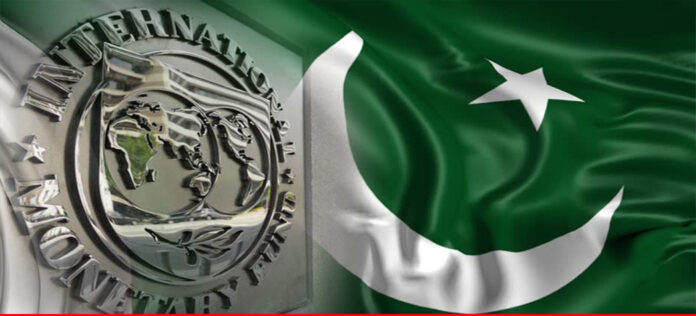By Staff Reporter
ISLAMABAD: Pakistan secured a $1.1 billion lifeline from the International Monetary Fund (IMF) on Monday, as the global lender approved the final tranche of a $3 billion bailout package designed to shore up the country’s dried-up finances and avert a sovereign default.
The funding is the second and last tranche of the standby arrangement with the IMF, which Pakistan secured in July last year.
The approval came a day after Pakistan Prime Minister Shehbaz Sharif discussed a new loan program with IMF Managing Director Kristalina Georgieva on the sidelines of the World Economic Forum in Riyadh.
Pakistan is seeking a larger long-term Extended Fund Facility (EFF) agreement with the fund after the current standby arrangement expires this month. If secured, it would be Pakistan’s 24th IMF bailout.
“The completion of the second and final review reflects the authorities’ stronger policy efforts under the SBA, which have supported the stabilisation of the economy and the return of modest growth,” the IMF said in a statement.
“To move Pakistan from stabilization to a strong and sustainable recovery the authorities need to continue their policy and reform efforts, including strict adherence to fiscal targets.”
The $350 billion economy faces a chronic balance of payments crisis, with nearly $24 billion to repay in debt and interest over the next fiscal year — three times more than its central bank’s foreign currency reserves.
Prime Minister Shehbaz Sharif said on Tuesday the IMF’s approval of $1.1 billion in funding would bring economic stability, amid discussions for a new bailout loan.
“Sharif expressed his satisfaction over the release of the last financial tranche of the IMF today,” the Prime Minister’s Office (PMO) said in a statement. “Receiving the last tranche of 1.1 billion dollars from the IMF will bring more economic stability in Pakistan.”
IMF said Pakistan’s determined policy efforts under the SBA have brought progress in restoring economic stability and moderate growth has returned; external pressures have eased; and while still elevated, inflation has begun to decline.
“Given the significant challenges ahead, Pakistan should capitalize on this hard-won stability, persevering—beyond the current arrangement—with sound macroeconomic policies and structural reforms to create stronger, inclusive, and sustainable growth. Continued external support will also be critical,” Antoinette Sayeh IMF’s deputy managing director said in a statement.
“The authorities’ revenue performance, as well as federal spending restraint, helped achieve a sizeable primary surplus in the first half of FY2024, in line with program targets. Continued revenue mobilization efforts and spending discipline at both federal and provincial levels remain critical to ensure that the primary surplus target is achieved. Beyond FY2024, continued fiscal sustainability and additional space for social and development spending depend on further mobilizing revenues, especially from non-filers and undertaxed sectors, and on improving public financial management.”
Sayeh said Pakistani authorities have stabilized the energy sector’s circular debt over the course of the SBA through timely tariff adjustments and enhanced collection efforts. “While these actions need to continue, it is also critical that the authorities undertake cost-side reforms to address the sector’s underlying issues and viability.”
The IMF deputy chief said the State Bank of Pakistan’s tight monetary policy stance remains appropriate until inflation returns to more moderate levels.
“Further improvements in the functioning of the foreign exchange (FX) market, together with a market-determined exchange rate, will help buffer external shocks and attract financing, thereby supporting competitiveness and growth. The significant rebuilding of FX reserves under the SBA needs to continue. Moreover, stronger action to address undercapitalized financial institutions and, more broadly, vigilance over the financial sector is needed to ensure financial stability,” he added.
“Achieving strong, long-term inclusive growth and creating jobs require accelerating structural reforms and continued protection of the most vulnerable through an adequately‑financed Benazir Income Support Program. Priorities include advancing the reform of state-owned enterprises (SOEs), including to ensure that all SOEs fall under the new policy framework; strengthening governance and anti-corruption institutions; and continuing to build climate resilience.”
Copyright © 2021 Independent Pakistan | All rights reserved




